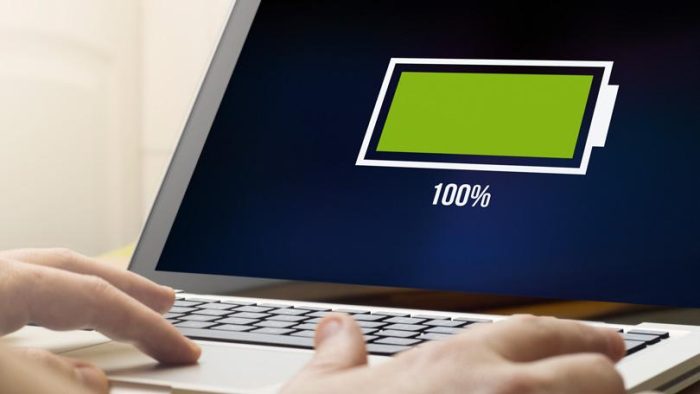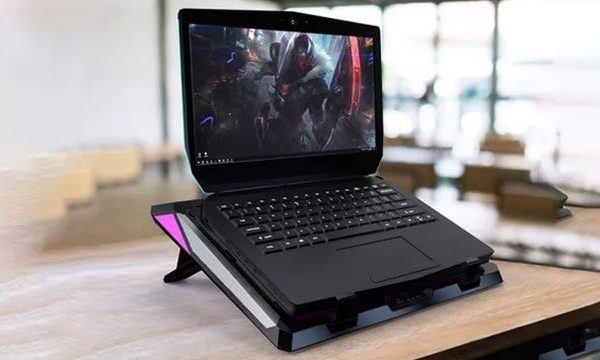Have you ever noticed that your laptop stops charging once it reaches 100% battery life? It may seem counterintuitive since you would expect it to keep charging and maintain a full charge. But have you ever wondered why laptops stop charging when they are full? Is it a design flaw or a technical limitation? In this blog post, we will explore the science behind this phenomenon and explain why your laptop behaves this way. So, let’s dive in and unravel the mystery behind laptops stopping charging when full!
Laptop Charging Process:
Before we dive into the topic of whether laptops stop charging when full, let’s first take a look at how laptops charge their batteries. When you plug in your laptop charger, it converts the AC power from the outlet to DC power that the laptop can use. The laptop then uses this power to charge the battery. The charging process is managed by the laptop’s charging circuit, which regulates the amount of power going to the battery.
Do Laptops Stop Charging When Full?
The answer is yes, most modern laptops are designed to stop charging the battery automatically when it reaches full capacity. This is done to protect the battery from overcharging, which can cause it to degrade over time and reduce its overall lifespan.
When the battery is full, the laptop’s charging circuit will stop charging the battery and will instead use the AC power to power the laptop directly. This means that even if you leave your laptop plugged in overnight, it won’t continue to charge the battery once it’s full.
However, it’s worth noting that not all laptops are created equal, and some may not have this feature built-in. It’s always a good idea to check your laptop’s manual or specifications to see if it has this feature.
How Laptop Charging Works

When a laptop is plugged in, the AC power is converted into DC power by the laptop’s power adapter. The DC power then charges the battery, which powers the laptop when it’s not plugged in. Laptop batteries are rechargeable, so they can be charged and discharged multiple times.
Laptop batteries are made up of individual cells that store electrical energy. Each cell is made up of a positive and negative electrode, and an electrolyte that allows charged particles to move between them. When a battery is charged, the electrical energy causes charged particles to move from the positive electrode to the negative electrode, storing energy in the cell. When a battery is discharged, the charged particles move back to the positive electrode, releasing the stored energy.
To prevent overcharging and damage to the battery, laptop charging circuits are designed to stop charging the battery once it reaches 100% capacity. When the battery is full, the charging circuit stops sending power to the battery and the laptop runs on AC power directly. This prevents overcharging and extends the life of the battery.
However, some laptops may continue to charge the battery even when it reaches 100% capacity, which can cause overcharging and reduce the battery’s lifespan. In such cases, it’s recommended to remove the battery from the laptop when it’s fully charged and run the laptop on AC power directly.
Can Overcharging Affect the Laptop Battery?
Overcharging can affect the lifespan of a laptop battery and can lead to the battery being unable to hold a charge for as long as it used to. Overcharging occurs when a battery continues to charge even after it has reached its maximum capacity, which can lead to heat build-up and chemical reactions that can degrade the battery.
Modern laptops have built-in charging circuitry that regulates the charging process to prevent overcharging. This circuitry monitors the battery’s charge level and adjusts the charging rate to maintain a safe and efficient charging process. When the battery reaches 100%, the charging circuitry will stop the charging process, and the laptop will run on AC power.
However, there are instances where overcharging can occur, such as when using a faulty charger or when the laptop’s charging circuitry is malfunctioning. In such cases, overcharging can occur, which can damage the battery and shorten its lifespan.
To prevent overcharging and extend the life of the laptop battery, it is important to use the correct charger and avoid using the laptop while it is charging. It is also recommended to periodically discharge and recharge the battery to maintain its health. Additionally, keeping the laptop and battery cool can also help to prevent overcharging and prolong battery life.
Conclusion
Laptops have a complex charging process that involves charging circuitry and regulation to ensure the battery is charged properly. While laptops do not stop charging when the battery reaches 100%, the charging circuitry regulates the amount of power going to the battery to prevent overcharging. Overcharging can be harmful to the laptop battery, leading to decreased battery life and potentially even damage. To prevent overcharging, it is important to use the laptop charger provided by the manufacturer, avoid using the laptop while it is charging, and avoid leaving the laptop plugged in for extended periods of time. By following these guidelines, laptop users can ensure their battery lasts as long as possible and avoid potential damage. Ultimately, understanding how laptop charging works and taking proper precautions can help users get the most out of their laptop batteries and extend the overall lifespan of their devices.
Frequently Asked Questions (FAQs)
What should I do if my laptop battery won’t charge?
If your laptop battery won’t charge, try unplugging the charger and plugging it back in, checking the charger and cable for any damage, and ensuring that the laptop is properly connected to the charger. If the problem persists, you may need to replace the battery or charger.
How long does it take to fully charge a laptop battery?
The time it takes to fully charge a laptop battery depends on the battery capacity and the charging speed of the charger. Generally, it can take anywhere from 1 to 4 hours to fully charge a laptop battery.
How often should I charge my laptop battery?
It is recommended to charge your laptop battery whenever it drops to 20% or lower. However, if you use your laptop frequently, you may need to charge it more often to ensure that it has enough power to last throughout the day.
Is it okay to leave my laptop plugged in all the time?
Leaving your laptop plugged in all the time can cause overcharging, which can be harmful to the battery. It is recommended to unplug the laptop once it reaches a full charge, or to use a charging timer to limit the amount of time that the laptop is plugged in.
How can I tell if my laptop battery is fully charged?
Most laptops will indicate when the battery is fully charged by displaying a message or turning off the charging light. You can also check the battery icon in the taskbar or system tray to see if it indicates that the battery is fully charged.


![What is Small Red Button in Middle Laptop Keyboard for? [TrackPoint Explained]](https://mobizilla.pk/wp-content/uploads/2023/10/24-1-600x396.jpg)
![Why are Gaming Laptops so Expensive [Explained]](https://mobizilla.pk/wp-content/uploads/2023/10/6499818d65b9ce0018a4bb4e-600x350.jpg)

